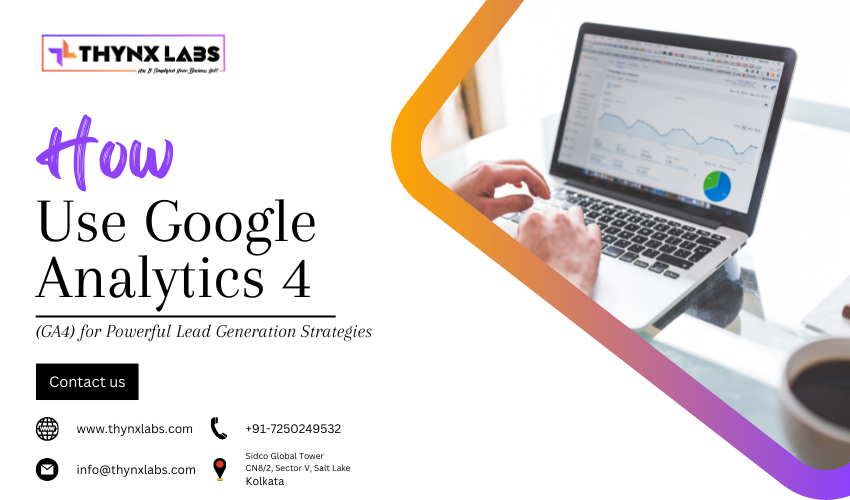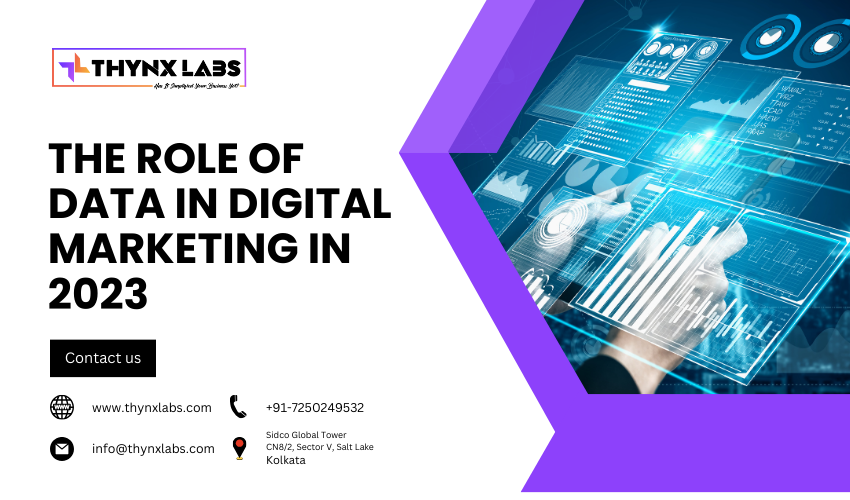Power of Data-Driven Marketing
Introduction
In the era of digital transformation, businesses are harnessing the power of data to drive marketing strategies and achieve unprecedented success. Data-driven marketing, leveraging insights from customer behavior and preferences, has become a cornerstone for businesses aiming to stay competitive and relevant. This article explores the significance and impact of unleashing the power of data-driven marketing.
Understanding Data-Driven Marketing
A. Defining Data-Driven Marketing
Data-driven marketing involves using insights and analytics derived from customer data to formulate and execute marketing strategies. It's a shift from traditional, intuition-based decision-making to a more precise and targeted approach.
B. The Evolution of Data in Marketing
Explore the historical progression of data usage in marketing, from basic demographic information to the sophisticated, real-time analytics available today.
The Power of Customer Insights
A. Personalization for Enhanced Customer Experience
Data-driven marketing allows businesses to personalize customer experiences, tailoring content and offerings based on individual preferences, leading to increased customer satisfaction.
B. Anticipating Customer Needs
By analyzing historical data, businesses can anticipate customer needs and proactively address them, fostering a stronger connection and loyalty.
Precision in Targeting
A. Segmentation for Targeted Campaigns
Data-driven insights enable businesses to segment their audience more precisely, allowing for targeted marketing campaigns that resonate with specific demographics.
B. Behavioral Targeting for Relevance
Understanding customer behavior allows for precise targeting. Businesses can deliver content and advertisements that align with the user's interests, increasing engagement.
Optimizing Marketing Channels
A. Channel Attribution for ROI
Data-driven marketing helps identify the most effective marketing channels by attributing conversions to specific touchpoints, optimizing budget allocation for maximum return on investment (ROI).
B. Multichannel Integration for Cohesive Strategies
Integration of data across multiple channels ensures a cohesive marketing strategy, creating a seamless experience for the customer across various touchpoints.
Enhancing Product Development
A. Data-Backed Product Innovation
By analyzing customer preferences and feedback, businesses can innovate products that align with market demands, reducing the risk of product flops.
B. Agile Product Iteration
Real-time data allows businesses to iterate and improve products quickly based on customer feedback, ensuring continuous relevance in the market.
Data-Driven Content Creation
A. Content Personalization
Data-driven insights enable businesses to personalize content, delivering the right message to the right audience at the right time, enhancing engagement.
B. Optimizing Content for SEO
Utilizing data analytics helps in optimizing content for search engines, improving visibility and attracting organic traffic to websites and digital platforms.
Improving Customer Acquisition and Retention
A. Targeted Acquisition Strategies
Data-driven marketing identifies high-value customer segments, allowing businesses to tailor acquisition strategies to attract the most valuable customers.
B. Loyalty Programs Based on Customer Behavior
Understanding customer behavior through data allows businesses to design effective loyalty programs that resonate with the preferences of their existing customer base.
Measuring and Analyzing Campaign Performance
A. Real-Time Analytics for Decision-Making
Data-driven marketing provides real-time analytics, empowering businesses to make informed decisions and adjust strategies on the fly for optimal performance.
B. Attribution Models for Comprehensive Insights
Utilizing attribution models helps businesses understand the contribution of each touchpoint in the customer journey, providing comprehensive insights for future campaigns.
Overcoming Data Challenges
A. Data Security and Privacy
Addressing concerns related to data security and privacy is crucial. Businesses must implement robust measures to protect customer data and comply with regulations.
B. Integration of Disparate Data Sources
Overcoming the challenge of integrating data from various sources ensures a holistic view, allowing for more accurate insights and decision-making.
Future Trends in Data-Driven Marketing
A. Artificial Intelligence Integration
Explore the growing role of artificial intelligence (AI) in data-driven marketing, automating processes and enhancing predictive analytics for more effective campaigns.
B. Ethical Data Usage
As consumers become more aware of data privacy, ethical data usage practices will be paramount. Future trends will involve transparent and ethical handling of customer data.
Implementing Data-Driven Marketing Strategies
A. Investing in Analytics Tools
Selecting and investing in advanced analytics tools is crucial for effective data-driven marketing. Businesses should choose tools that align with their specific needs and goals.
B. Continuous Learning and Adaptation
Data-driven marketing is an ongoing process. Businesses must foster a culture of continuous learning, adapting strategies based on evolving data and market trends.
Case Studies of Successful Data-Driven Marketing
A. Examining Notable Examples
Analyze real-world examples of businesses that have achieved success through data-driven marketing, showcasing their strategies and the impact on their bottom line.
B. Learning from Challenges
Explore instances where data-driven marketing faced challenges, extracting valuable lessons for businesses looking to navigate potential pitfalls.
Conclusion
In conclusion, the power of data-driven marketing lies in its ability to transform businesses into agile, customer-centric entities. By harnessing the insights derived from data, businesses can create personalized experiences, optimize marketing strategies, and stay ahead in an increasingly competitive landscape.
FAQs
Q1: Is data-driven marketing only suitable for large businesses?
Data-driven marketing can benefit businesses of all sizes. Small businesses can leverage data to understand their audience better and tailor marketing efforts accordingly.
Q2: How can businesses ensure data privacy in data-driven marketing?
Implementing robust security measures, obtaining explicit consent from customers, and complying with data protection regulations are essential steps to ensure data privacy.
Q3: Can data-driven marketing be implemented without advanced analytics tools?
While advanced analytics tools enhance the efficiency of data-driven marketing, businesses


